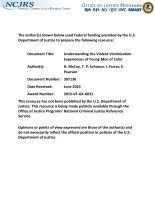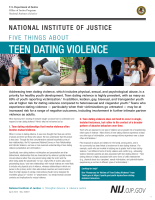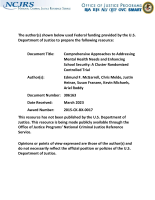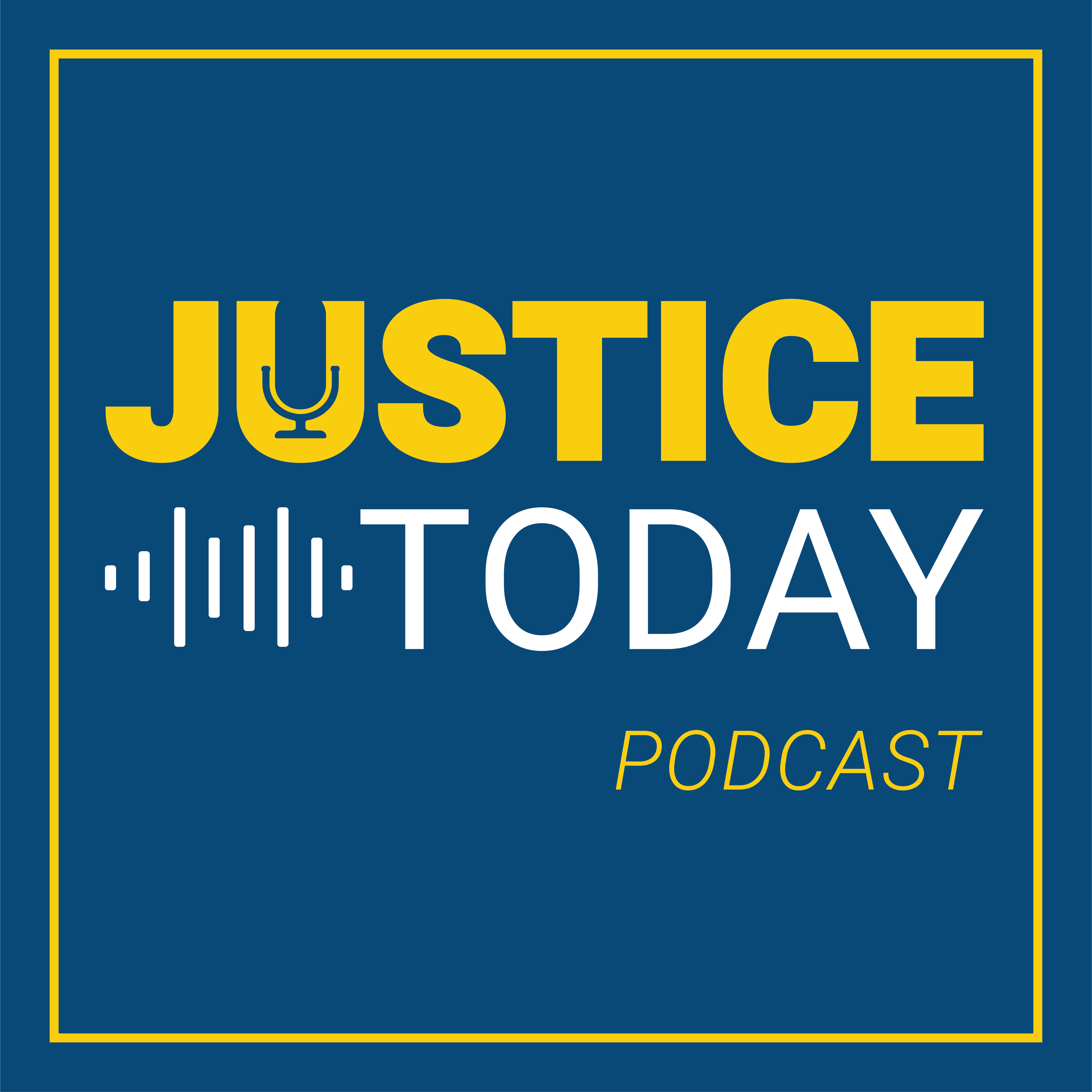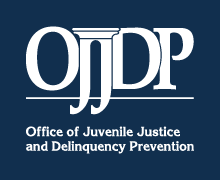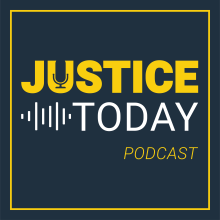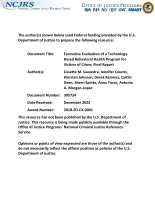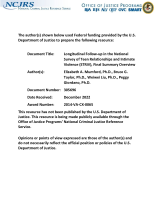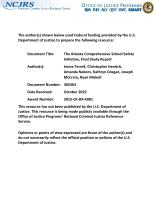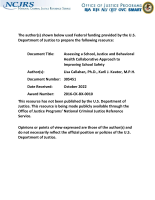Health and mental health
Veterans Moving Forward: Process and Impact Evaluation Results of the San Diego County Sheriff's Department VMF Program
Just Science Podcast: Just Thriving in a Forensic Workplace
Five Things About Teen Dating Violence
Study on the Effectiveness of Responsive Aggression Regulation Therapy (Re-ART)
It's a Marathon Not a Race: Exiting the Commercial Sex Trade
Comprehensive Approaches to Addressing Mental Health Needs and Enhancing School Security: A Cluster Randomized Controlled Trial
A Leg Up: NIJ's Graduate Research Fellowship Program
NIJ Director Dr. Nancy La Vigne joins the show to interview Dr. Marie Garcia, Director of NIJ’s Criminal Justice Systems Division and a former NIJ graduate research fellow. They discuss the application process, Marie’s experience as a fellow while at Temple University, and advice for future applicants.
Reading and Resources from NIJ:
Emerging Relevance of Neuroscience in Corrections
Examining the Role of Responsivity Factors in Juvenile Probation Outcomes
Using Administrative and Survey Data to Evaluate the Impact of Changing Marijuana Laws and Policies on Marijuana Use, Treatment Admissions for Marijuana, and Mortality Related to Marijuana and Other Drug Use
Campus Sexual Assault Responses (CSAR): Informing Trauma-Informed Policies, Protocols, and Training
Sexual violence is a significant criminal justice problem with long-term effects for its victims. In particular, sexual assault on or related to college campuses across the United States presents a growing public health and economic burden, starting with significant impacts on academic outcomes.
See the YouTube Terms of Service and Google Privacy Policy
Gender-Based Violence and the Latinx Community
See the YouTube Terms of Service and Google Privacy Policy
Economic Justice for Survivors of Intimate Partner Violence
See the YouTube Terms of Service and Google Privacy Policy
Defining and Studying Elder Abuse Polyvictimization
Defining and Studying Elder Abuse Polyvictimization
NIJ Social Science Analyst Yunsoo Park shares her knowledge about elder abuse, a widespread issue in the U.S. and around the world, particularly polyvictimization — the experience of a range of different types of abuse and maltreatment. As much as 11% of community-residing older adults experienced some form of abuse or mistreatment in the past year. Yunsoo discusses risk factors, difficulties in defining and studying elder abuse polyvictimization, and strategies for intervention and prevention. Stacy Lee Reynolds, a Communications Assistant with NIJ, hosts.
Cross-sectional and Temporal Associations Between Cyber Dating Abuse Victimization and Mental Health and Substance Use Outcomes
The Impact of Intimate Partner Violence Exposure in Adolescence and Emerging Adulthood: A Developmental Psychopathology Approach
Formative Evaluation of a Technology-Based Behavioral Health Program for Victims of Crime, Final Report
Longitudinal Follow-up in the National Survey of Teen Relationships and Intimate Violence (STRiV), Final Summary Overview
Desistance from Crime: Interventions to Help Promote Desistance and Reduce Recidivism
No single criminal justice agency can promote desistance on its own. Partnerships across state, local, and federal agencies — along with the support of family and community stakeholders — are instrumental in supporting desistance from crime and reducing recidivism.
Law enforcement, courts, corrections, and community supervision agencies play a key role in the desistance process and reducing recidivism.
See the YouTube Terms of Service and Google Privacy Policy


